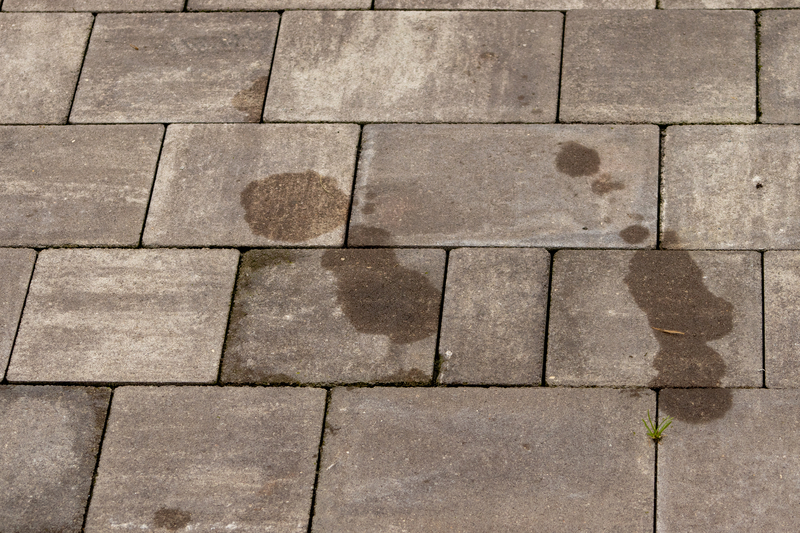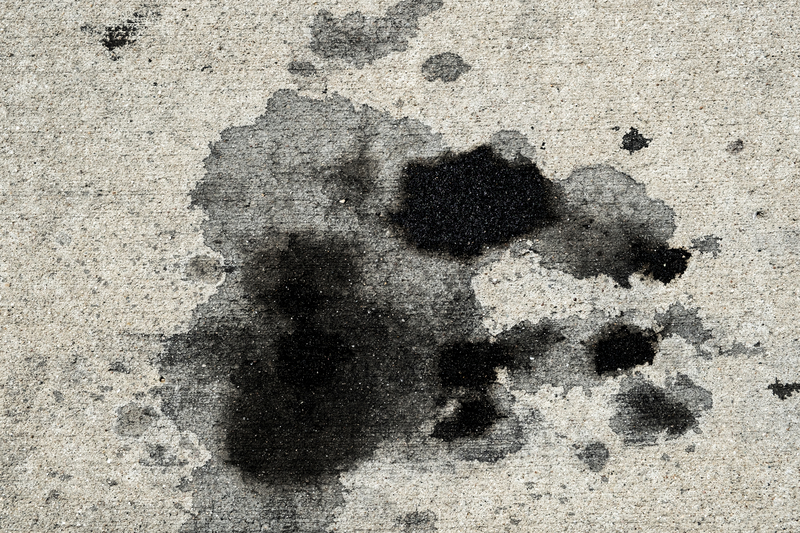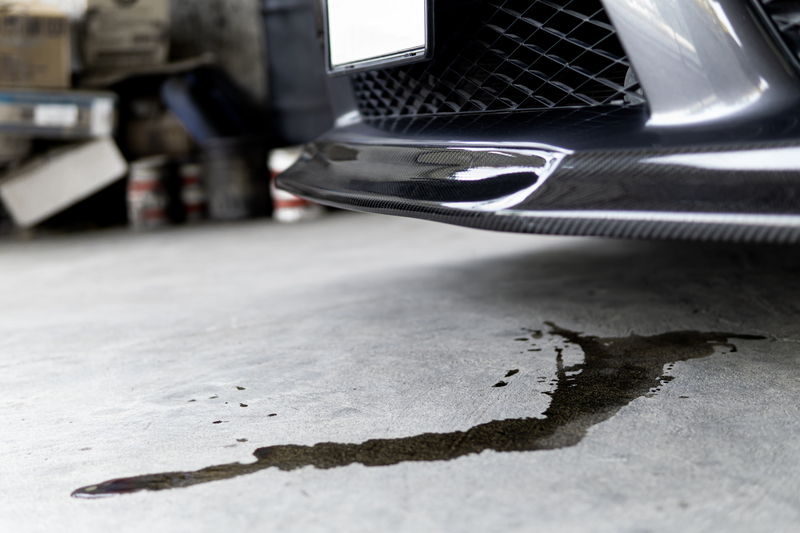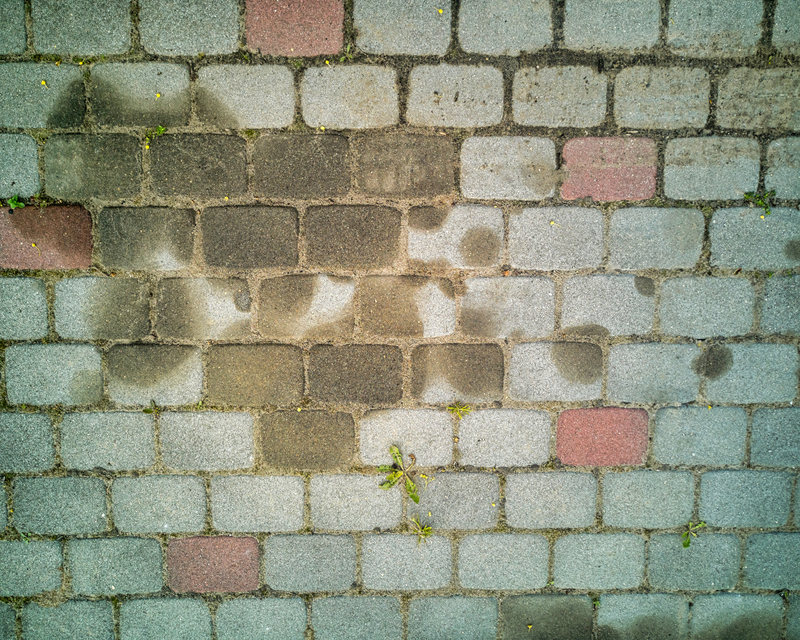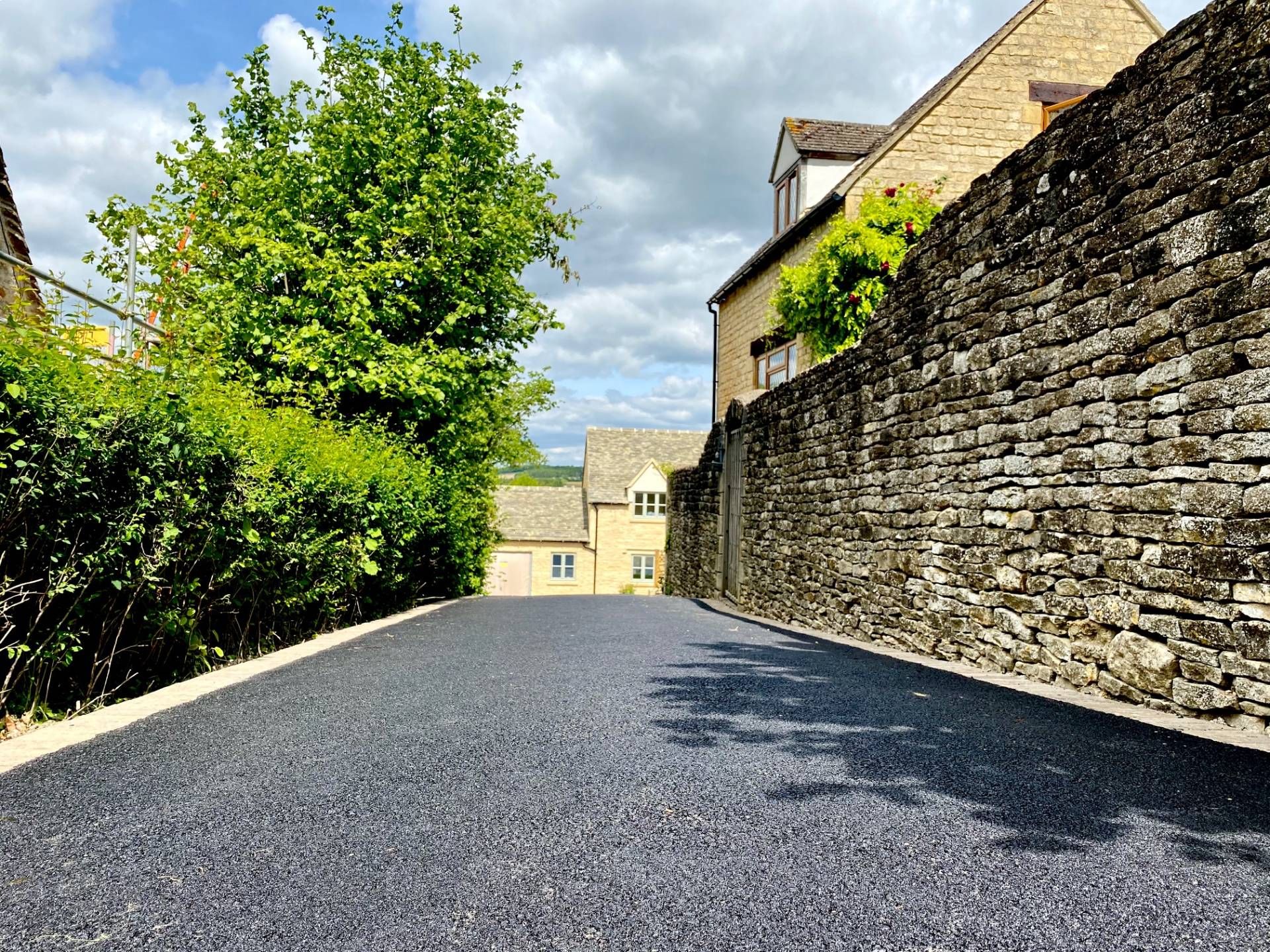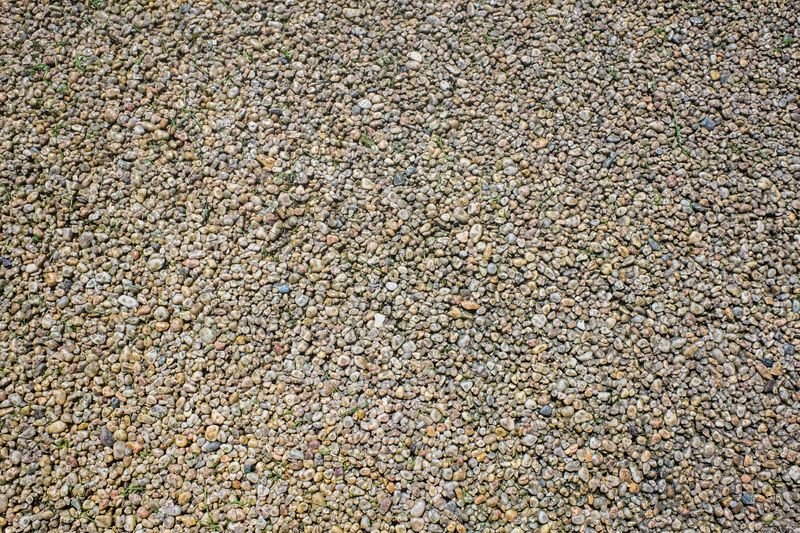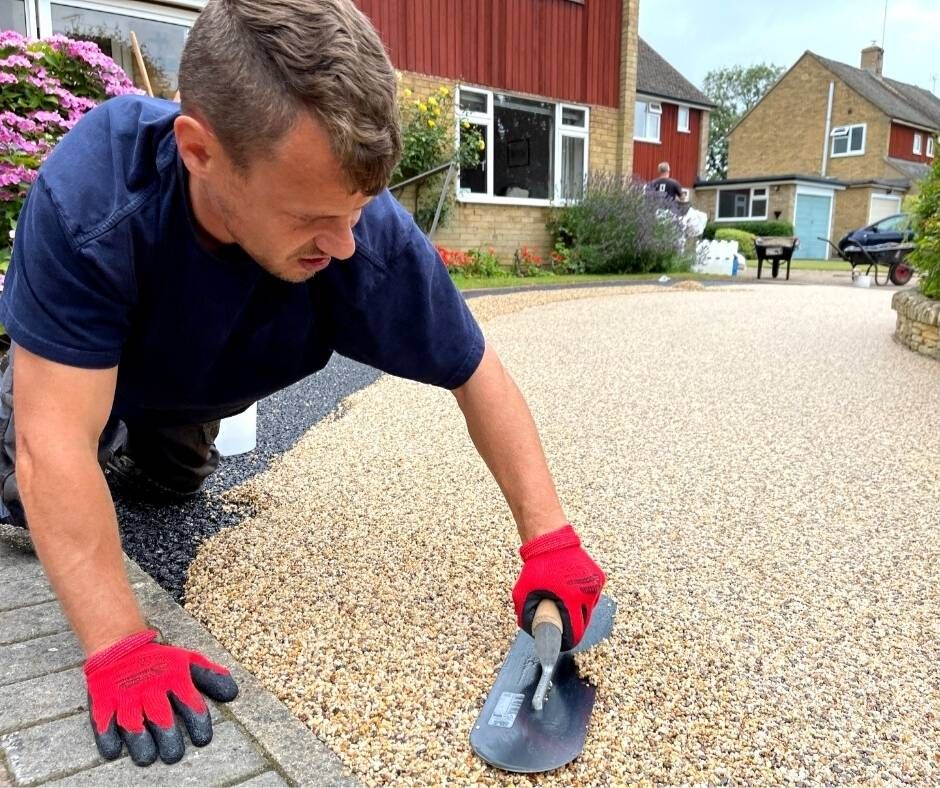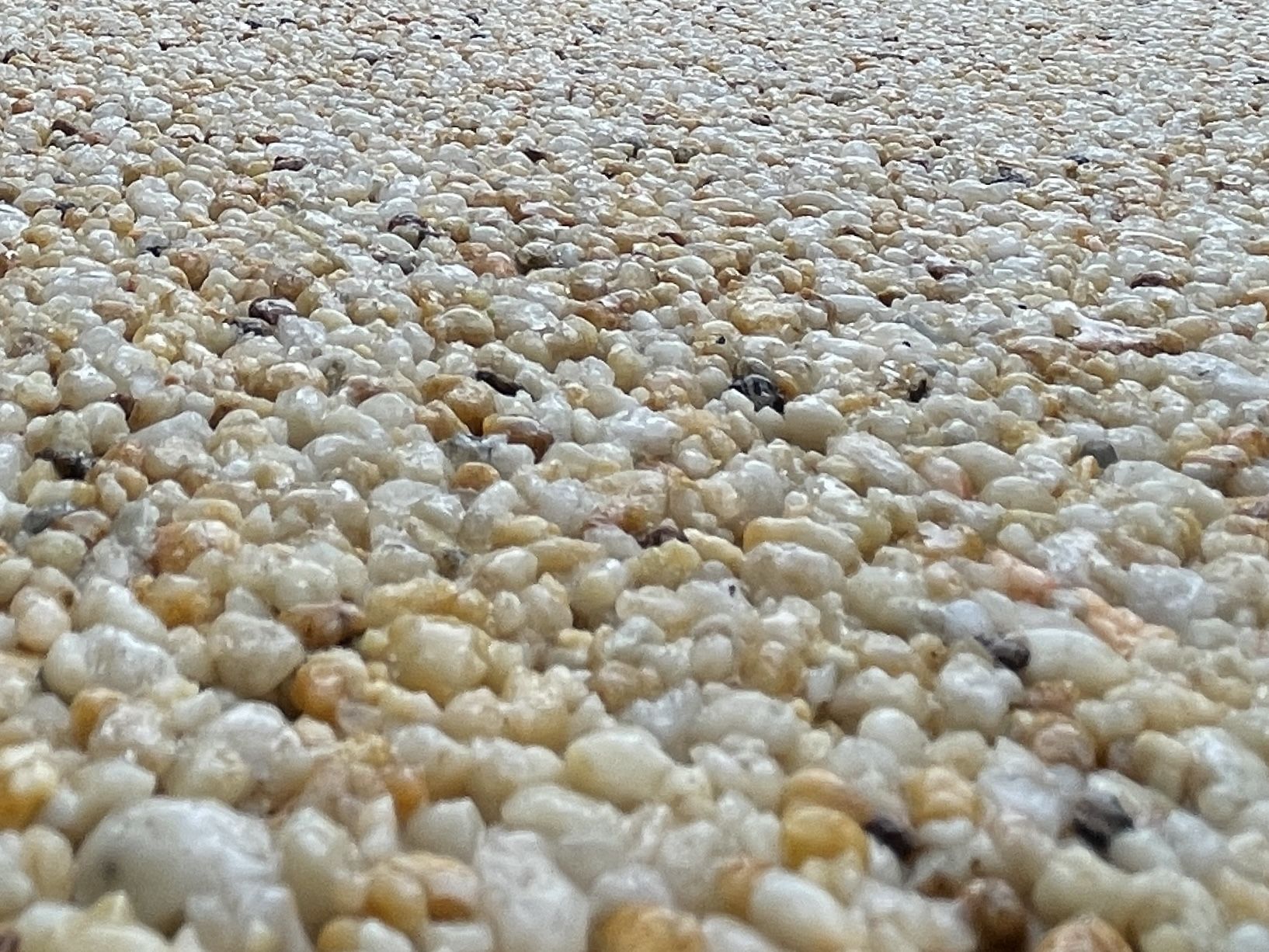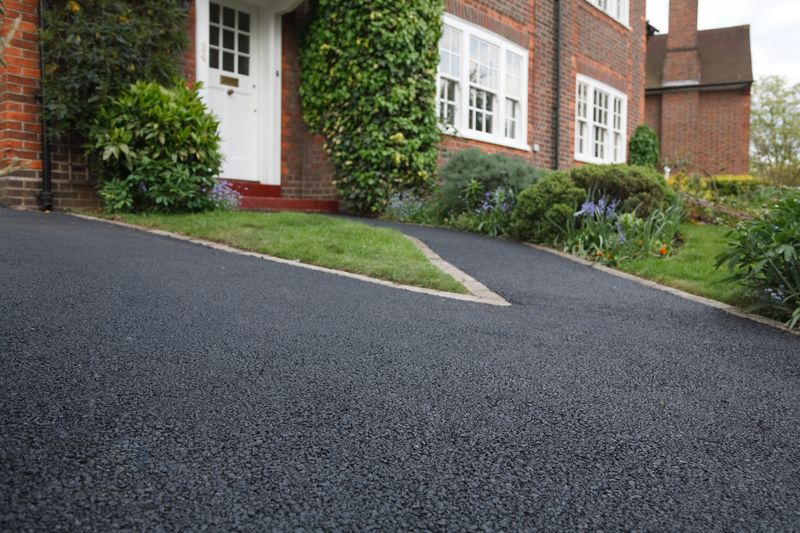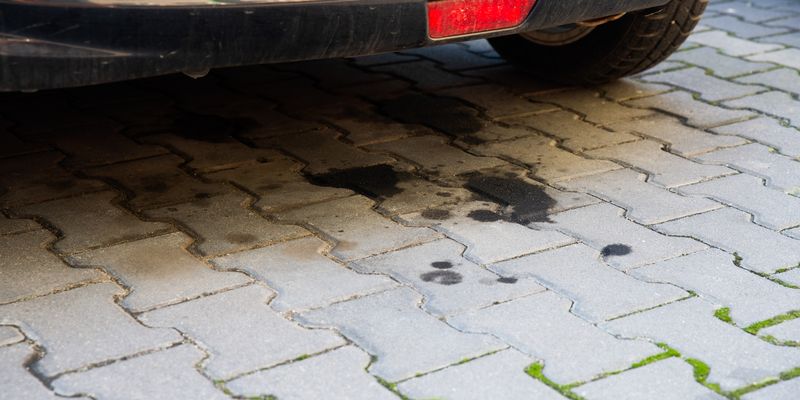
How to remove oil stains from a driveway?
Blog
We all know the frustration of seeing those stubborn marks detracting from the beauty of our outdoor spaces. Not only are oil stains an eyesore, but they can also wreak havoc on the longevity of your driveway. So, how do you get rid of these pesky oil stains?
In this blog, we're diving into the world of driveway maintenance and looking at ways you can combat oil stains on your driveway. We'll chat about the impact these stains have on your driveway's appearance and durability and why quick action is vital to keeping your driveway looking spick and span.
Why do Oil Stains occur?
Before you can understand how to combat oil stains on your driveway, it's a good idea to try and find out where they're coming from - so you can prevent them in the future. Let's take a look at the leading causes of oil stains on your driveway surface:
- Vehicle Leaks: Vehicle leaks are the most common cause of oil stains on driveways. Cars, motorcycles, and other motorised vehicles can develop leaks from their engines, transmissions, or other components, resulting in oil dripping onto the driveway surface.
- Spills during Maintenance: When performing maintenance tasks such as oil changes or fluid top-ups on vehicles, accidental spills or drips can occur, leading to oil stains on the driveway if not cleaned up promptly.
- Equipment and Machinery: Oil or lubricant spills from equipment like lawnmowers, generators, or power tools used near the driveway can also contribute to oil stains when spills occur and are not cleaned up immediately.
- Roadside Parking: Vehicles parked on the driveway after driving through oil spills or leaks on the road can transfer oil residue onto the driveway surface, causing stains over time.
- Improper Disposal: Improper disposal of used oil or other petroleum-based products near the driveway can lead to spills and stains if containers leak or are not appropriately sealed.
- Natural Factors: Environmental factors such as rainwater carrying oil residues from nearby roads or parking areas can contribute to oil stains on driveways, especially in areas with poor drainage.
The Importance of Removing Oil Stains?
Oil stains on driveways are primarily composed of hydrocarbons, including gasoline, motor oil, or grease. These substances seep into the driveway's porous surface, making them challenging to remove with conventional cleaning methods. The porous nature of concrete or asphalt allows oil to penetrate deep, leaving lasting marks that mark the appearance of your driveway.
Environmental Impact of Neglected Oil Stains
Oil stains can pose environmental risks when left untreated by contaminating soil and water sources. Rainwater can wash oil residues from driveways into storm drains, polluting local water bodies and ecosystems. Oil's toxic components can harm plants, aquatic life, and overall environmental health if not properly addressed.
Importance of Effective Cleaning Methods
To restore the appearance of your driveway and prevent further environmental damage, it's crucial to employ effective cleaning methods tailored to oil stains. Using the right cleaning products and techniques not only helps remove the stains but also ensures that your driveway maintains its pristine look and longevity.
Choosing appropriate methods can revitalise your driveway and contribute to a cleaner, more sustainable outdoor environment. So, let's take a look at how you can get rid of the oil stains that are stuck in your driveway!
Step 1: Preparing for Oil Stain Removal
Materials and Tools for the Cleaning Process
To effectively tackle oil stains on your driveway, you will need to gather the following materials and tools:
- Absorbent materials like cat litter or sawdust
- Scrubbing brush or stiff bristle broom
- Bucket of water
- Protective gloves and eyewear
- Cleaning agents such as dish soap, baking soda, vinegar, or a commercial oil stain remover
- Pressure washer (optional for tougher stains)
- Absorbent cloths or rags for wiping
Safety Precautions for Handling Cleaning Agents
Before diving into the cleaning process, ensure your safety by following these precautions:
- Wear protective gloves and eyewear to prevent skin contact and eye irritation.
- Work in a well-ventilated area to avoid inhaling fumes from cleaning agents.
- Read and carefully follow the instructions on cleaning product labels to use them safely and effectively.
Tips for Selecting the Right Cleaning Products
When choosing cleaning products for oil stain removal, consider the following tips based on your driveway surface material:
- Concrete Driveways: Opt for alkaline-based cleaners to break down oil stains effectively without damaging the concrete surface.
- Asphalt Driveways: Use biodegradable degreasers designed for asphalt to prevent discolouration or deterioration.
- Paver or Stone Driveways: Select pH-neutral cleaners to protect the natural integrity of the stones or pavers while removing oil stains effectively.
Methods for Oil Stain Removal:
Sponging Up Oil Stains
Absorbent materials like cat litter or baking soda work wonders on fresh oil stains:
- Application Process: Sprinkle a generous amount of cat litter or baking soda over the oil stain, covering it entirely.
- Time Needed for Absorption: Allow the absorbent material to sit on the stain for at least 24 hours, giving it ample time to soak up the oil residue effectively.
Homemade Cleaning Solutions
You can use homemade solutions that effectively help remove oil stains on driveways. Let's take a closer look at these options:
- Vinegar and Baking Soda Solution:
- Mix equal parts vinegar and baking soda to form a paste.
- Apply the paste to the oil stain and scrub gently with a brush.
- Dish Soap and Warm Water Mixture:
- Dilute dish soap in warm water to create a soapy solution.
- Pour the solution over the oil stain and scrub vigorously before rinsing off.
Pressure Washing
Pressure washing is a potent tool for removing tough oil stains from driveways. It effectively blasts away deeply ingrained oil stains, restoring the driveway's cleanliness.
- Operation Guide:
- Adjust the pressure washer nozzle to a fan setting for broader coverage.
- Maintain a safe distance to prevent damage to the driveway surface.
- Sweep the pressure washer back and forth across the oil stain, gradually increasing pressure as needed.
A Closer Look at Different Driveways
There are various effective methods for removing oil stains from different types of driveways. Natural Stone driveways will have different solutions than those with granite sets. Let's take a little look at the most popular types of driveways and what methods are the best to use.
Tarmac Driveway
A common cleaning method for tarmac driveways involves using dish soap and water. Pour a small amount of dish soap onto the oil stain and scrub the area vigorously to lift the oil residue effectively.
Concrete Block Paving Driveway
One approach to removing oil stains from a concrete driveway (or paving blocks) is to sprinkle a generous amount of baking soda on top of the driveway paving slabs that have the oil stains and wet them slightly with water. Then, brush the stain using this mixture to help lift the oil residue off the concrete surface.
Block Paving Driveway
When dealing with oil stains on block paving areas, using a strong degreaser scrubbed in thoroughly and left to sit for a minute can be effective. Rinse the paved areas with hot water at 120+ degrees to activate the degreaser and remove the oil stains from the natural stone setts successfully.
Gravel Driveway
For gravel driveways, removing oil stains can be challenging due to the nature of the surface. One method involves using cat litter or baking soda to absorb the oil, then sweeping or vacuuming up the absorbent material and the oil residue.
Resin Driveway
When tackling oil stains on resin driveways, applying a layer of baking soda over the oil stain and letting it sit for some time can help absorb the oil residue. Scrubbing the area with a hard-bristle brush can further lift the oil stains off the resin surface.
By following these tailored methods for each type of driveway surface, you can effectively remove oil stains and restore the cleanliness of your driveway.
Professional Cleaning Services for Tough Stains
For particularly stubborn or extensive oil stains, professional driveway cleaning services can offer expertise and specialised equipment for effective removal. These services can provide:
- High-pressure steam cleaning to lift deep-seated oil residues.
- Environmentally friendly solvents and techniques to minimise ecological impact.
- Expertise in handling tough stains without causing damage to the driveway surface.
Preventative Measures
To prevent future oil stains on driveways and maintain a pristine appearance, you can consider the following tips:
- Regular Maintenance: Schedule regular maintenance for vehicles to detect and address leaks promptly. This can help prevent oil from dripping onto the driveway surface and causing stains.
- Parking Strategies: Avoid parking vehicles with known leaks on the driveway. Instead, designate a specific area or use drip pans to catch any potential leaks and prevent them from reaching the driveway.
- Absorbent Materials: Keep absorbent materials like cat litter, baking soda, or commercial absorbents on hand to address any oil spills or leaks before they penetrate the driveway surface.
- Protective Sealants: Apply protective sealants designed explicitly for driveways to create a barrier against oil penetration. Sealants can help repel oil stains and make cleaning spills easier.
Best Practices for Handling Vehicle Leaks and Spills:
When dealing with vehicle leaks and spills to avoid driveway staining, follow these best practices:
- Prompt Cleanup: If a leak or spill occurs on the driveway, clean it up immediately using absorbent materials and a degreaser to prevent the oil from seeping into the surface.
- Containment Measures: Use drip pans or trays underneath vehicles with potential leaks to catch any fluids and prevent them from reaching the driveway surface.
- Regular Inspections: Conduct regular inspections of vehicles for signs of leaks, such as oil spots under the engine or transmission. Address any leaks promptly to prevent driveway stains.
- Professional Maintenance: Seek professional maintenance services for vehicles to ensure that leaks are identified and repaired by trained technicians, reducing the risk of driveway staining.
By implementing preventive measures, handling vehicle leaks responsibly, and prioritising regular maintenance, you can uphold a pristine appearance for your driveway. Proactive care not only maintains the aesthetics of the driveway but also extends its longevity and enhances curb appeal.
Considerations
Taking proactive steps to prevent oil stains demonstrates a commitment to preserving the cleanliness and attractiveness of your driveway. It also reflects a sense of pride in homeownership and attention to detail. Embrace these practices to enjoy a well-maintained and stain-free driveway for years.
Compare the cost-effectiveness of purchasing commercial oil stain removers versus hiring professional services based on the extent of staining and budget constraints - and if you can, opt for environmentally conscious products or services that prioritise sustainability and eco-friendly practices to minimise environmental harm during the cleaning process.
By exploring the array of commercial oil stain removers, weighing the benefits of professional cleaning services, and considering cost and eco-friendliness, you can make an informed choice to combat oil stains and restore the allure of your effectively.
Final Thoughts
To ensure a spotless driveway, addressing oil stains promptly and incorporating preventive measures into your maintenance routine is crucial. By proactively tackling oil stains and adopting regular cleaning habits, you can preserve the aesthetics of your driveway and contribute to a cleaner outdoor environment.
Here at Henson Surfaces, we can help with any surfacing and driveway enquiries. From tarmac driveways to block paving to driveway pavers, our team can help create your dream driveway. Contact us today, and a member of the team will be more than happy to answer any questions and book you in for a free consultation.
